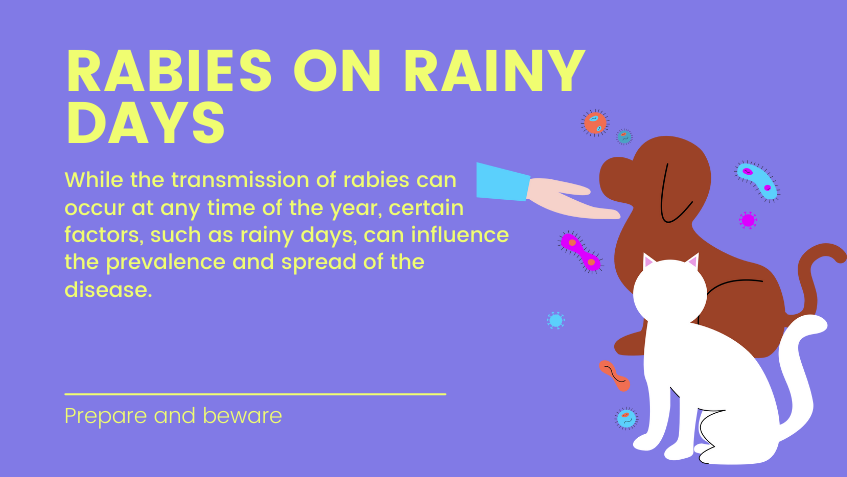Rabies on Rainy Days
Rabies is a viral disease that affects mammals, including humans. It is primarily transmitted through the saliva of infected animals, usually through a bite or scratch. While the transmission of rabies can occur at any time of the year, certain factors, such as rainy days, can influence the prevalence and spread of the disease. Here are a few points to consider regarding rabies and rainy days:
Animal behavior
Rainy weather can affect the behavior of animals, including those infected with rabies. Some animals may seek shelter during rainy days, reducing their interaction with humans and other animals. However, other species, such as bats, may become more active during wet weather. Bats are known carriers of the rabies virus, so it’s important to exercise caution when dealing with them, regardless of the weather.
Encounters with animals
During rainy days, there may be an increased likelihood of encounters with wildlife seeking shelter or displaced due to flooding. It’s crucial to avoid approaching or handling any wild animals, as they could potentially be infected with rabies. If you come across an animal that seems sick, disoriented, aggressive, or exhibits other unusual behavior, it is best to contact your local animal control or health authorities for assistance.
Stray animals
Rainy weather can drive stray animals, including stray dogs and cats, to seek refuge in various locations. Stray animals may have a higher risk of carrying rabies, especially in regions where the disease is prevalent. It is important to avoid direct contact with stray animals and report their presence to local animal control or authorities.
Human behavior
Rainy days can affect human behavior as well. People may spend more time indoors or take different routes to avoid getting wet. However, it is still possible to come into contact with infected animals, even during rainy weather. It’s important to maintain awareness of your surroundings and take necessary precautions, such as avoiding contact with unfamiliar animals and vaccinating pets against rabies.
Regardless of the weather conditions, it is always advisable to follow general guidelines for preventing rabies: vaccinate pets, avoid contact with stray or wild animals, report any unusual animal behavior to the relevant authorities, and seek immediate medical attention if you have been bitten or scratched by an animal, especially if it is showing signs of rabies.
You may also visit – https://www.facebook.com/angkopparasahayop





